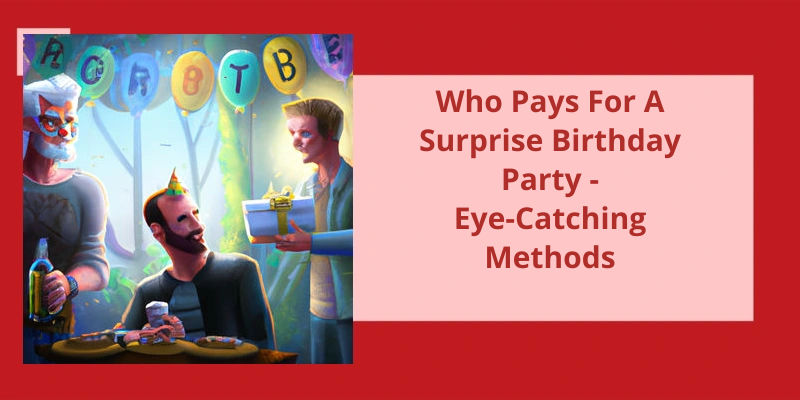As human beings, we’re often raised with the idea of finding our soulmate and staying with them for the rest of our lives. However, life rarely follows such a scripted path, and many of us find ourselves in relationships that don't quite meet our expectations. It's not uncommon for couples to find themselves losing that initial spark of attraction and struggling to maintain the same level of intimacy they once had. In some cases, one partner may feel like they no longer love the other, leading to feelings of guilt, confusion, and even frustration. So, is it normal to not always feel in love? The answer is yes. In fact, it's a common experience that many people go through. Despite what the media and our upbringing may tell us, relationships aren’t always easy, and it's perfectly normal for them to ebb and flow. Understanding this can help us navigate the ups and downs of romantic relationships and make more informed decisions about our futures.
Is It Normal for a Person to Not Feel in Love?
Some people may experience a lack of romantic or sexual attraction towards others. This could be due to a number of factors, including genetics, upbringing, or past experiences. It’s important to remember that not feeling in love doesn’t make you abnormal or broken. Everyone experiences emotions differently, and you shouldnt feel pressured to conform to societal expectations of what love should look like.
If you’ve never felt in love before, it’s important to be patient with yourself. Love can take time to develop, and it’s perfectly normal to not have experienced it yet. Focus on building meaningful connections with those around you, and don’t compare your experiences to others. You never know when love might sneak up on you, but in the meantime, theres nothing wrong with enjoying life on your own terms.
For those who’ve lost love for a partner, it’s important to take the time you need to process your emotions. Grief is a personal experience, and there’s no right or wrong way to feel. It’s okay to feel numb or apathetic towards the idea of love while you work through your feelings. It’s also okay to take a break from dating and focus on self-care.
If you identify as aromantic or asexual, it’s important to remember that there’s nothing wrong with you. Society often puts pressure on individuals to seek out romantic and sexual relationships, but these desires arent universal. You’re valid and deserving of love, no matter what form it takes. Surround yourself with people who support and understand you, and don’t feel pressured to conform to societal norms.
Emotions can be complex and unpredictable, and it’s important to be patient and kind with ourselves. Whether you havent experienced love yet, have lost love, or simply don’t feel the same emotions as those around you, it’s important to remember that your feelings are valid and deserving of respect. So, embrace your unique experience of emotions and don’t let society define what love means to you.
As time goes on and relationships evolve, it’s not uncommon for individuals to experience fluctuations in their feelings for their partner. While these shifts may feel unsettling at first, they can be a perfectly normal and healthy part of the ebb and flow of love. Here are some frequently asked questions about falling in and out of love.
Is It Normal to Keep Falling in and Out of Love?
However, this doesn’t necessarily mean that the love is completely gone. Relationships go through phases, and it’s common for the intensity of the feelings to ebb and flow. This can be caused by a variety of factors, such as stress, changes in lifestyle, or the natural progression of the relationship. It’s important to remember that love isn’t just a feeling, but also a choice and a commitment to your partner.
Falling back in love with your partner can also happen, especially if both parties are willing to work at it. It may require some effort, such as actively spending quality time together, communicating openly and honestly, and finding ways to reignite the spark. It can also be helpful to focus on the positive aspects of the relationship, and to practice gratitude and appreciation for your partner.
However, it’s important to note that there’s a difference between falling in and out of love and being in an unhealthy or toxic relationship. It isn’t healthy to constantly break up and make up, or to stay in a relationship where you feel unhappy or unsafe. It’s also not normal for one partner to consistently fall out of love while the other is deeply invested in the relationship. In these cases, it may be necessary to seek professional help or to consider ending the relationship.
Ultimately, everyones experience with love and relationships is unique, and there’s no one-size-fits-all answer to whether it’s normal to fall in and out of love. It’s important to trust your own feelings and to communicate openly with your partner about where you both stand. It’s also crucial to take care of yourself, emotionally and physically, and to make choices that align with your values and goals for the future.
However, there are also internal factors that can contribute to feeling unloved. These can include low self-esteem, past trauma, and mental health issues. In this article, we will explore both external and internal causes for why someone might not feel loved and provide some tips for how to combat these feelings.
What Causes a Person to Not Feel Loved?
It doesn’t matter if this is a romantic partner, a family member, or a friend- the lack of love and care from those who’re supposed to love us can be a devastating experience which can leave a lasting impact on our emotional wellbeing. For some people, this feeling of being unloved can be so pervasive that they start to believe that they don’t deserve love at all.
Another reason why some people may not feel loved is due to their attachment style. Attachment theory posits that our early relationships with our caregivers shape how we relate to others in our adult lives. If we didnt receive the emotional support and validation we needed as children, we may find it difficult to establish healthy connections with others in our adult lives. We may either cling to people who’re emotionally unavailable, push others away, or struggle to trust in the authenticity of loving connections.
For others, their mental health status can also be a significant factor. Depression, anxiety, and other mental health conditions can make it hard for a person to feel joy, happiness, or even experience positive emotions like love. People with mental health issues may feel unworthy of love and push people away as a result.
Were bombarded constantly with messages about what love should look like, feel like, and be like. These unrealistic expectations can contribute to feelings of inadequacy, self-doubt, and self-criticism. This, in turn, can make it difficult for people to accept love and affection in their real-life relationships.
Lastly, some people may feel unloved because they havent learned how to show love to themselves. Self-love is a critical component of feeling loved and valued. When we don’t value ourselves, we may settle for unhealthy relationships or put up with poor treatment from others. We may also carry a lot of self-criticism and negative beliefs about ourselves that can get in the way of feeling loved and appreciated.
It could be due to their past experiences, attachment style, mental health status, societal expectations, or their relationship with themselves. Whatever the reason, feeling unloved is a painful and distressing experience that can lead to a variety of negative outcomes. Fortunately, however, with the right support, self-care, and self-reflection, a person can learn how to cultivate more loving and meaningful relationships and feel truly loved and appreciated.
Source: Do You Struggle To Feel Loved? – Walking the Shoreline
It can be difficult to navigate romantic relationships when you don’t feel love, but it’s important to recognize the underlying issues that may be causing this. Low self-esteem can often be the culprit, making it difficult to believe that we’re worthy of love. However, there are ways to improve our self-perception and increase self-compassion. Through self-care and mindfulness practices like meditation, we can begin to build a healthier relationship with ourselves and others.
What Does It Mean if I Don’t Feel Love?
Additionally, past experiences can also contribute to a lack of feelings of love. Trauma, abuse, or neglect can create emotional barriers and difficulty trusting others, making it difficult to form deep connections. It’s important to seek out therapy or counseling to work through these past experiences and potentially heal from them, allowing for the possibility of experiencing love in the future.
It’s also possible that you may be experiencing depression or another mental health condition that’s affecting your ability to feel love or form relationships. These conditions can impact your mood, energy levels, and overall outlook on life. Seeking professional help and treatment can improve symptoms and potentially allow for stronger emotional connections.
Sometimes, not feeling love may simply be a temporary state due to stress or life changes. It’s important to give yourself time and space to process and adjust, as well as engage in self-care practices like exercise, eating well, and spending time with loved ones.
It’s important to note that everyone experiences emotions differently, and not feeling love doesn’t make you abnormal or unlovable. It’s important to explore and understand your own emotions and needs, whether that means seeking help from a therapist or taking time to reflect on your past and current experiences. By acknowledging and addressing any underlying issues or obstacles, it’s possible to open yourself up to the possibility of experiencing love and forming meaningful connections.
Conclusion
It's important to remember that love isn't always a constant emotion and that it can come and go throughout a relationship. It doesn't necessarily mean that there’s something wrong with you or your partner. What's important is to communicate with each other and work towards finding a solution, whether it be pursuing therapy, trying new things together, or accepting that it's time to move on. Above all, recognizing that it's okay to not always feel in love is a crucial step in navigating the ups and downs of a relationship. Ultimately, what matters most is finding happiness and fulfillment in your life, whether that's with your partner or on your own.






